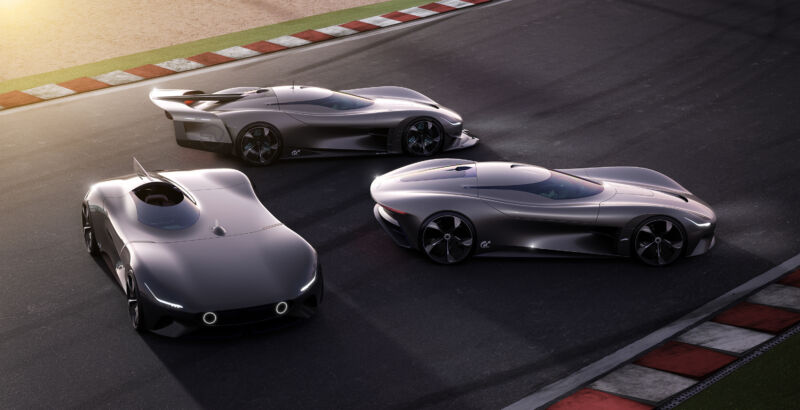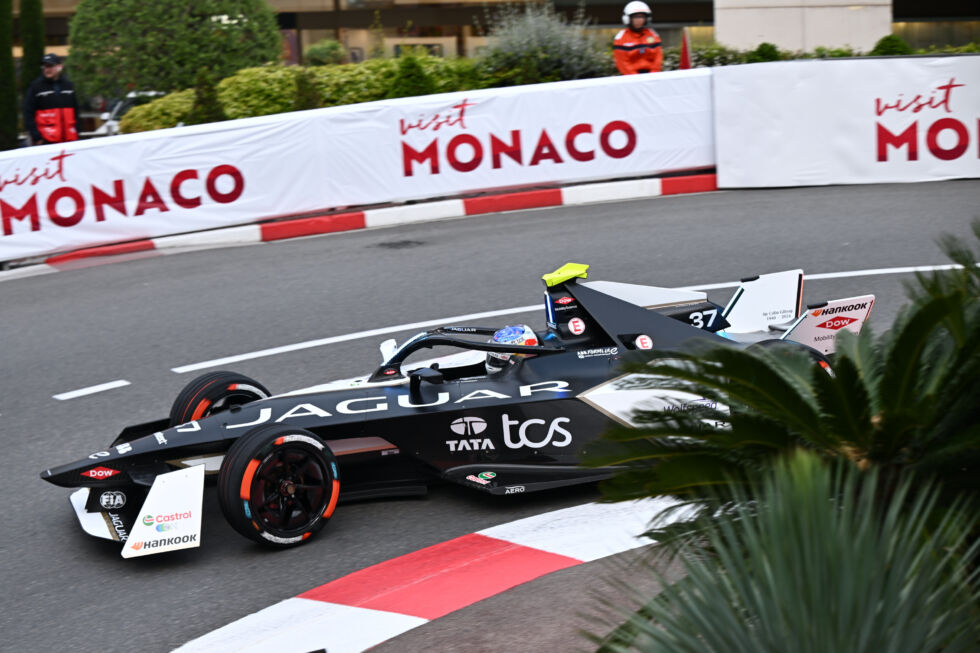
Jaguar
MONACO—It may be hard to remember, but not too long ago, Jaguar made a very nice electric vehicle. The I-Pace arrived in 2018, and it was the only EV other than the bare-bones Chevy Bolt that could compete with a Tesla on range. It was great to drive, too. An electric replacement for the XJ sedan was meant to be next until it was canceled months before production was supposed to begin.
“I’d seen the car, it was a beautiful car, but when I look at the designs that we have now, when I look at the technology that we’ll bring in the vehicle, it’s night-and-day different,” said Rawdon Glover, managing director of Jaguar. “I think that previous car would have been sort of a segue into something else, where we’re doing a step change.”
And a step change is what Jaguar Land Rover CEO (and Glover’s boss) Thierry Bolloré wants for Jaguar: for it to move upmarket, the way Range Rover has. Tearing up the electric XJ was a bold step—it meant the only new electric Jaguars to debut from 2021 until 2025 would be the brand’s Formula E race cars.

Jaguar Racing via Getty Images
But 2025 is getting close. Later this year, production of the XF, E-Pace, and F-Pace will all end, as will the I-Pace. The F-Pace production line at Solihull in the British midlands will be revamped to build the first of three models built on an all-new EV platform, Jaguar Electric Architecture. That first model will be a four-door electric GT, a space that’s about to get very competitive as the established Porsche Taycan is also joined by alternatives from Lotus and Polestar.
Jaguar is not quite ready to start talking specifics of that JEA platform, although Glover told me to expect about 400 miles of “real-world range” (700-plus miles, according to the WLTP test cycle) and a battery pack that can fast-charge to 80 percent in 15 minutes. I’ll admit, I’m looking forward to finding out more—Jaguar’s history has often featured financial troubles, but it’s also been jam-packed with innovation.
Formula E is making future Jaguars better EVs
I met with Glover on the day the team’s cars took a 1–2 victory on the streets of Monaco. They put on a good show—unlike Formula 1, Formula E cars can actually race around this place—three wide at times, and overtaking happens (occasionally, memorably, into a corner where most people think you can’t overtake).
The ePrix can’t quite compare to the F1 Grand Prix in terms of glamour, but it’s not too far off; the harbor had a decent complement of yachts packed with important sponsors in need of some VIP treatment. As an event to visit as a spectator, you’ll see better racing and have to battle smaller crowds if you choose the ePrix, not to mention save some euros in the process.
